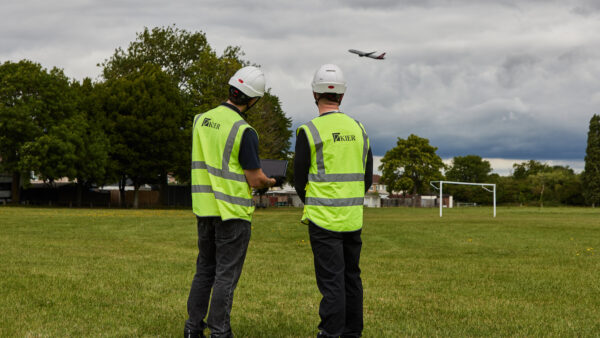
Andrew Belton: agent for change
Industry representatives have welcomed a candid interview given by new CITB chief executive Adrian Belton in which he admitted that the organisation operates “processes that remind me of banking in the 1980s” but pledged that he was embarking on a reform agenda.
In an interview with Construction News, Belton also said that the CITB is conducting an internal review of its operations and services, and will take “make/buy/sell” decisions to streamline its operations, with some current activities set to be axed.
He also floated the possibility that the National Construction College in Bircham Newton, Norfolk, could be reinvented as an “institute of advanced construction” where the CITB might be an investment partner rather than the owner.
Belton took up the role of chief executive in April, moving from his role as chief executive of the Food and Environment Research Agency. He succeeded interim chief executive William Burton, and former chief Mark Farrar, who stepped down in April 2013.
Paul Bogle, policy manager at the National Federation of Builders, has told CM that Belton’s arrival seemed to have changed the “weather” at the CITB. “Overall in the last few months, there’s been a real sense that CITB is changing and there’s a renewed energy and greater willingness to look at things differently.
“The message coming out is that it wants to more closely align with the real needs of the industry. As a trade association we’re working on a closer working relationship with the CITB – they’re going to work to identify where the skills are needed and where the gaps are.”
He added that NFB members hoped to see the CITB “focus on delivering skills and ensuring easy access to training funds, and addressing the administrative burden of the levy”.
In a statement, Brian Berry, chief executive of the FMB, said: “The FMB applauds the new CEO Adrian Belton as an ‘agent for change’. CITB has a key role to play in addressing the growing needs of the construction industry, but it needs to do so in a fast, efficient way. Adrian Belton is the man to carry out this task, which is why it is so refreshing that he is taking a helicopter view and not afraid to make the changes that are needed.”
The 1,500-strong CITB has been criticised for being over-staffed, while overlapping responsibilities have meant that other industry organisations have found it difficult to engage with the right teams within the CITB.
The levy and grant system is widely viewed as too complicated, and the CITB has also been criticised for being poor at communicating what it does.
But Belton told Construction News that he had embarked on a “two-to-three-year” period of reform. The former 20-strong board of trustees is being reformed as a “more business-focused” group of eight which will be tasked with reforming the levy and grant application procedures.
He said that the CITB was likely to remain at its current size, but would operate more efficiently.
The NFB’s Bogle also said he hoped the CITB would address the industry’s rapidly-changing skills needs. “I think we need to think big as an industry – and that’s for the CITB as well. It needs to look at future skills gaps, and what the skills requirements might be. We’re essentially still building as the Romans did, brick on brick. So we need the CITB to do more research and look into the ways of achieving these goals.”










